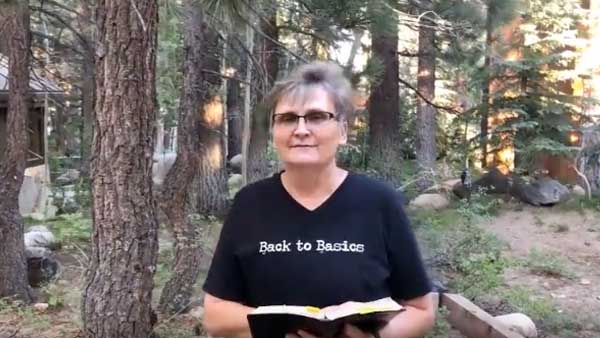Dr. Rick Mandl - July 31, 2020
Why You're More Likely To Defend Your Hamburger Than Another Person
Why You Are More Likely To Defend Your Hamburger Than Another Person
Friday July 31, 2020
Hey church family, did you know that people are nearly eight times more likely to stand up for their hamburger than they are to stand up for the harassed stranger who is sitting at the table next to them? What do I mean by that? Well if you want to see the whole story, I encourage you to join us for worship this weekend, where I’ll be sharing it as part of our message, “Blessed Are The Peacemakers” but right now I’ll give you the condensed version.
What happened is that Burger King conducted a test in which they used adolescent actors to stage a scene, where a young man was being bullied by a group of teens in one of their restaurants. At the same time, that this was going on, the Burger King cooks in the kitchen were themselves “bullying” a number of hamburgers before wrapping them up and delivering them to that same group of restaurant customers. Of those who received a smashed hamburger, a burger that had been bullied, 95 percent took it back and complained. Many of them complained with great anger, and even with profanity, about the way that their burger had arrived. By comparison, only 12 percent stepped in to intervene on behalf of the young man who was being bullied, or even bothered to check on him after the incident had ended. Maybe the only thing sadder than the results of that survey is the fact that those results probably don’t come as much of a surprise for a lot of us. We know that historically people have preyed upon the weak around them, and history demonstrates that it’s relatively rare for people to step in when they don’t have a personal stake in the matter. Sadly, that’s often just as true for Christians as it is for everyone else.
What we need to remember is that much of Jesus’ ministry was spent standing up for those his culture mistreated and showing mercy to the people who were used to being judged. There’s an example of this in John chapter 8:2-11. It’s a story in which the religious leaders brought to Jesus a woman who had been caught in adultery. When they brought this woman to Jesus they pointed to the command of Moses which said that a woman who had been caught in adultery should be stoned and then they asked Jesus his opinion on the matter.
It may be a story that you’ve read and even studied before, but what stands out to me in that story is verse 6, where the writer, John explains that the religious leaders brought the woman before Jesus “as a trap, in order to have a basis for accusing him.” You think about that and you realize that for the question that they asked Jesus to work as a trap, they had to ask it knowing how Christ would respond. For their trap to work they needed to know, that Christ would respond to this woman with a level of grace that exceeded their understanding of the Law. How could they know that?
The reason that they knew it was because mercy was such a fundamental part of Jesus’ character and ministry that the religious leaders knew he would not condemn this woman according to their rules. The way Christ showed grace to the woman who needed it while also calling her to “go and sin no more” (John 8:11) encapsulated that balance and defined much of his ministry. I wonder, though, can the same be said of us?
Are our lives so defined by mercy and grace that others will know that condemnation will not be our first response when we’re made aware of their sin? Will our experiences of God’s love fill us with such gratitude for the mercy we’ve been shown that we can’t help but share it with those around us?
A couple of weeks ago, we looked at the beatitude, “Blessed are the merciful, for they will be shown mercy.” This weekend we’re continuing our study through the Beatitudes and looking at “Blessed are the peacemakers, for they will be called children of God.” Ask yourself, are the terms “Merciful and Peacemaker” words that others would use to characterize you. If so, keep it up. If not, maybe it would be a good think to talk to God about in prayer.
From Series: "Daily Devotional Videos"
Find daily inspiration and motivation with our video devotionals!
Signup for our e-newsletter if you would like to receive these in your personal email account. Or follow us on Facebook, Instagram, YouTube, or Twitter to be notified when we post a new devotional on any of our social media accounts.









